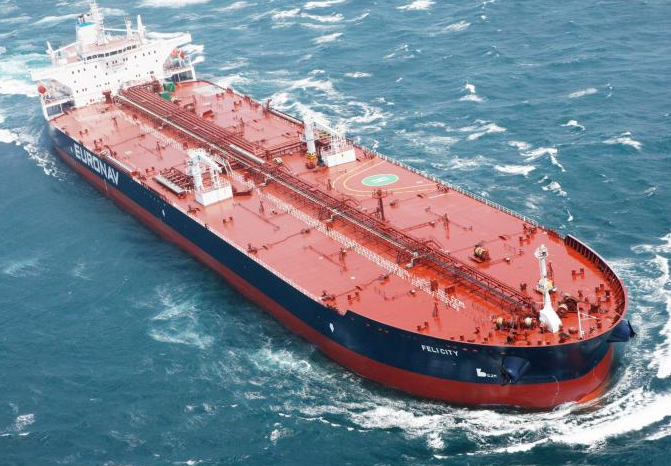Berlin: German Foreign Minister Annalena Baerbock has indicated that her country should consider imposing an oil embargo on Russia in the wake of its invasion of Ukraine.
In a security policy speech Friday, she said it was important to take a stance and not remain silent due to economic or energy dependency.
“Even if it’s difficult, including on questions now with regard to oil or other embargoes,” said Baerbock.
Germany receives about a third of its oil from Russia and half of its coal and natural gas.
Baerbock also warned against China’s growing influence over energy infrastructure in Africa and Asia, saying Germany will soon propose a new strategy on dealing with Beijing.
___
Key developments in the Russia-Ukraine war:
Rescuers search for survivors at Mariupol theatre hit by Russian airstrike; casualties unclear.
— World leaders called anew for an investigation of Russia’s repeat attacks on civilian targets.
— Russian media reported that the detention of WNBA star Brittney Griner was extended until May 19.
— An American man was among many killed in a Russian attack on the northern Ukrainian city of Chernihiv.
Other developments:
Berlin: A spokesman for Olaf Scholz says the German chancellor spoke Friday by phone with Russian President Vladimir Putin and urged him to agree to an immediate cease-fire in Ukraine.
During the hour-long call, Scholz also called for an improvement to the humanitarian situation and progress in efforts to find a diplomatic solution to the conflict.
___
Copenhagen: Norwegian Prime Minister Jonas Gahr Støre wants an extra allocation of 3.5 billion kroner ($400 million) for 2022 to strengthen NATO member Norway’s Armed Forces and civil preparedness.
Gahr Støre told Norway’s parliament that the money will be used to “strengthen our ability to prevent, deter and deal with digital attacks.” “These are necessary measures because we are facing a more unpredictable and aggressive Russian regime,” Gahr Støre said, adding that Russian President Vladimir Putin “has raised the alert of his nuclear weapons forces. It contributes to more uncertainty in an already tense situation.”
He said Norway “is NATO’s eyes in the north.”
In a speech to the Scandinavian country’s parliament about Ukraine, Gahr Støre said Norway was gearing up “to handle an extraordinary situation with up to 100,000 refugees.”
“We do not know how long the war will last, or how many will come here. But in any case, it will put us to a historical test,” he said.
___
Lviv: Lviv Mayor Andriy Sadovyi said Friday on Telegram that several missiles hit a facility used to repair military aircraft and damaged a bus repair facility, though no casualties were immediately reported.
The plant had suspended work ahead of the attack, the mayor said.
The missiles that hit Lviv were launched from the Black Sea, but two of the six that were launched were shot down, Ukrainian air force’s western command said on Facebook.
___
Lviv: Ukrainian President Volodymyr Zelenskyy said he was thankful to US President Joe Biden for the additional military aid but said he would not say specifically what the new package included because he didn’t want to tip off Russia.
“This is our defense,” he said in his nighttime video address to the nation.
“When the enemy doesn’t know what to expect from us. As they didn’t know what awaited them after Feb. 24,” the day Russia invaded.
“They didn’t know what we had for defense or how we prepared to meet the blow.”
Zelenskyy said Russia expected to find Ukraine much as it did in 2014, when it seized Crimea without a fight and backed separatists as they took control of the eastern Donbas region. But Ukraine is now a different country, with much stronger defenses, he said.
He said it also was not the time to reveal Ukraine’s tactics in the ongoing negotiations with Russia. “Working more in silence than on television, radio or on Facebook,” Zelenskyy said. “I consider it the right way.”
___
United Nations: Russia’s UN ambassador says he is not asking for a vote Friday on its resolution on the humanitarian situation in Ukraine, which has been sharply criticised by Western countries for making no mention of Russia’s responsibility for the war against its smaller neighbour.
Vassily Nebenzia told the UN Security Council Thursday that Russia decided at this stage not to seek a vote because of pressure from the United States and Albania on UN members to oppose it, but he stressed that Moscow is not withdrawing the resolution.
Nebenzia said Russia plans to go ahead with a council meeting Friday to discuss again its allegations of US “biological laboratories” in Ukraine, claiming new documents.
His initial charge was made without any evidence and repeatedly denied by US and Ukrainian officials.
US Ambassador Linda Thomas-Greenfield responded to Nebenzia’s announcement by saying “their farcical humanitarian resolution … was doomed to fail.”
“We know if Russia really cared about humanitarian crises, the one that it created, it could simply stop its attacks on the people of Ukraine,” she said. “But instead, they want to call for another Security Council meeting to use this council as a venue for its disinformation and for promoting its propaganda.”
At last Friday’s council meeting on Russia’s initial allegations of US “biological activities,” Thomas-Greenfield accused Russia of using the Security Council for “lying and spreading disinformation” as part of a potential false-flag operation by Moscow for the use of chemical or biological agents in Ukraine.
AP
